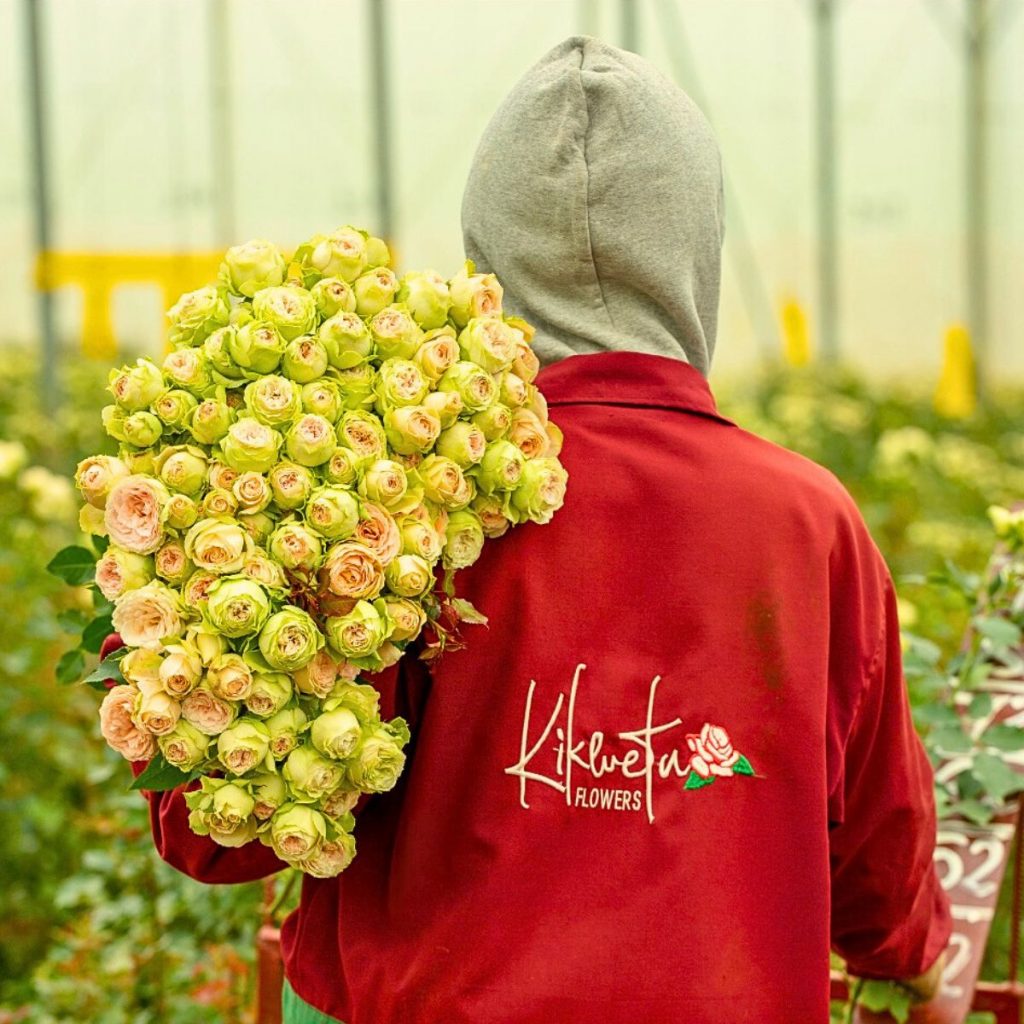
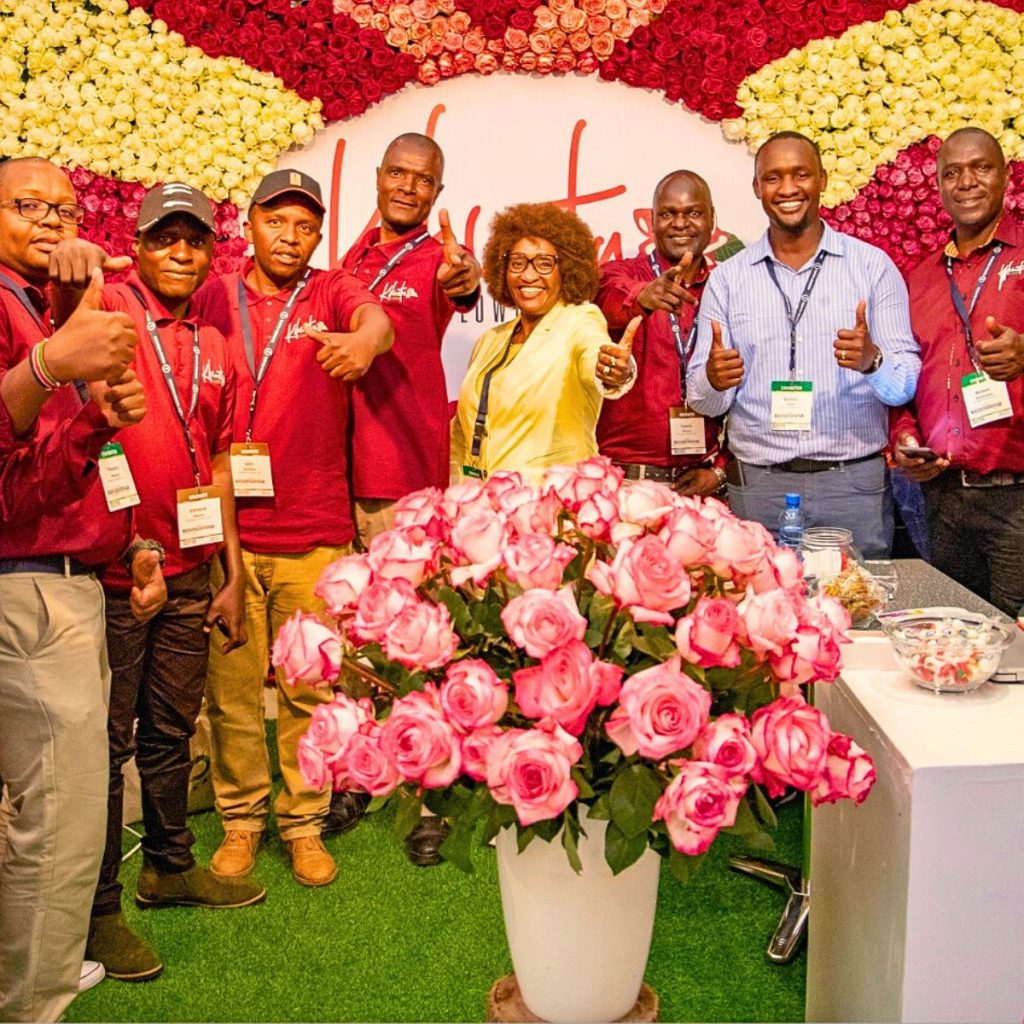
Since its founding in 2019 in the heart of Kenya’s rich flower-growing region of Timau, premium rose grower Kikwetu Flowers has strived to bring exactly that new variety of premium roses to the market. These varieties always grab people’s attention and elicit a “wow” response from almost everyone, including the growers themselves. After all, that’s what this highland rose farm is all about, and that’s what makes it special!
Our Style, Our Culture Philosophy
First and foremost, Kikwetu Flowers is located in the middle of a small rural community near Timau, Meru County, Kenya. In some way, the whole community is involved in the farm. Locals work hand in hand with colleagues from other areas. But it’s the unity in the workplace that counts. This philosophy gave birth to the Kikwetu ideology (Kikwetu translates roughly to “doing things our way” in Swahili or “our culture, our style” according to the breeder). It brings a unique balance of different cultures, and the directors are definitely pleased.
Started with just five hectares, the floriculture farm now operates on 19 hectares, cultivating 41 varieties of premium roses. Rose Ever Red remains a strong presence among the varieties produced by the breeder, but many others are just as strong in the market. But there is a side to this breeder that is less talked about. This is the aspect of sustainability and the impact this relatively “young” breeder has had on the community surrounding the farm.
Sustainability and Community Welfare Initiatives
According to Mathia Yinda, one of the managing directors of the flower growing company, there are numerous sustainability initiatives underway at Kikwetu Flowers. Finally, in the current flower market and trends, sustainability is a very important issue that all stakeholders in the flower industry and the entire value chain adhere to. Thus, Mathia pointed out some of the premium rose producer’s environmental initiatives.
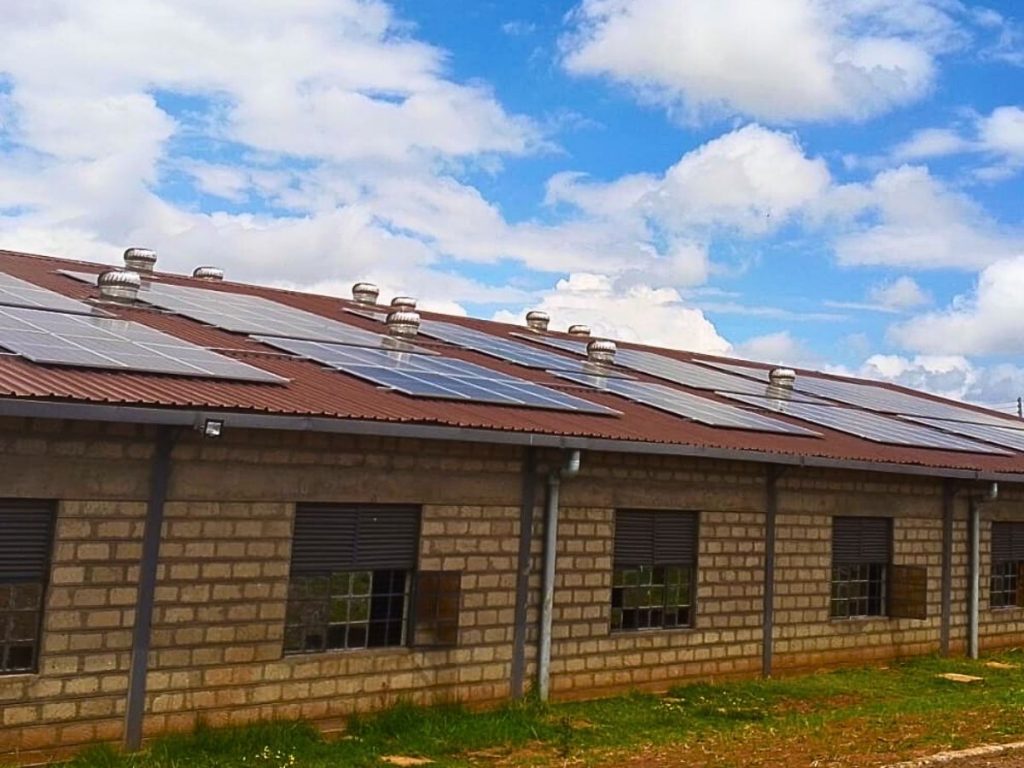
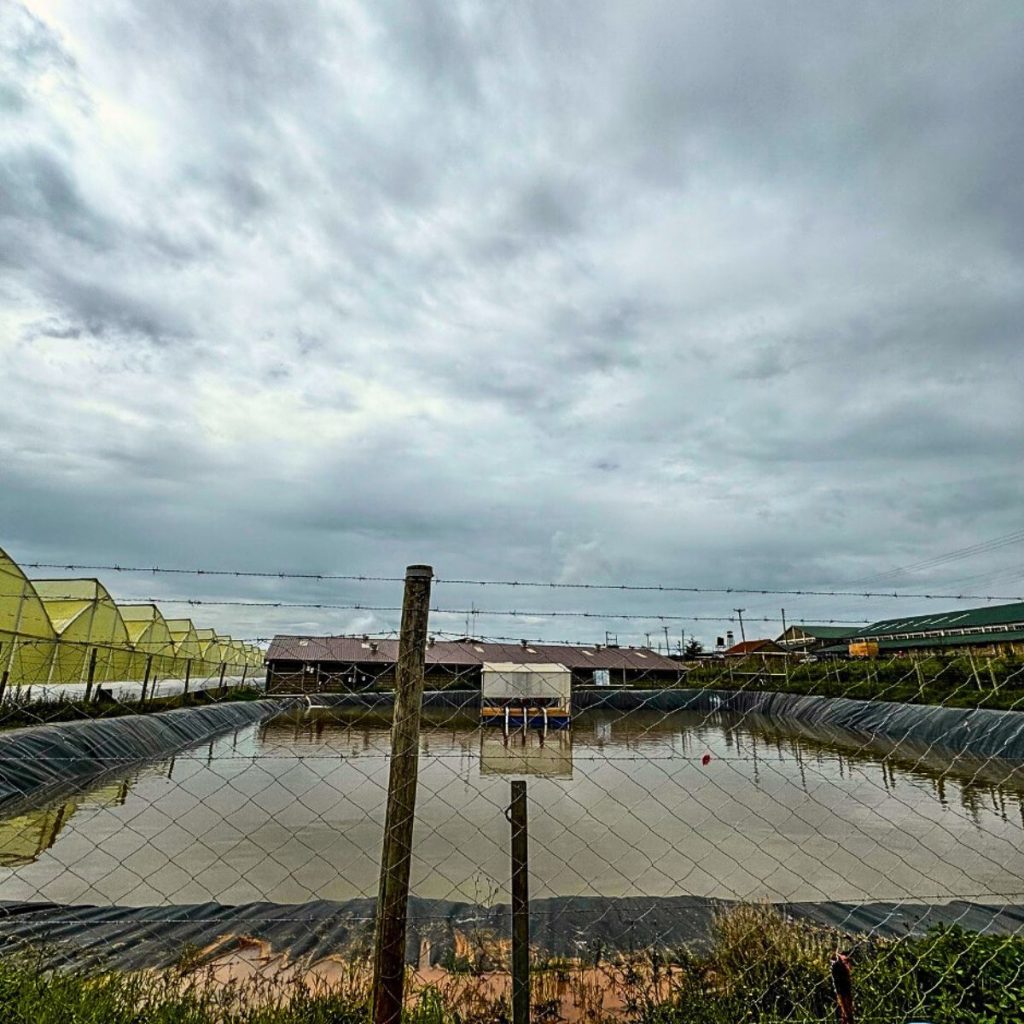
Investing in Green Energy Green energy, especially solar energy, has become an increasingly popular and essential option for farmers looking to reduce costs and meet the ideals of sustainability. Solar farms use clean renewable energy to complement or completely replace existing fossil energy sources in a variety of processes.
It is environmentally friendly and has no greenhouse gas emissions. It is also easy to maintain. When Kikwetu Flowers began its solar energy journey, these considerations were taken into account and solar panels were strategically placed on the farm and on the farm’s main dam. These solar panels and other green energy initiatives provide 60-80% of Kikwetu Flowers’ energy needs. The modules also help prevent water evaporation from the dam.
Composting floral waste
Another element of sustainability concerns the use of organic and biological fertilizers and materials that do not harm the environment. Worm tea, obtained by composting floral waste, is a nutrient-rich product that Kikwetu Flowers uses to grow roses.
Worm tea, also known as vermicompost tea, is a nutrient-rich liquid fertilizer made by steeping vermicompost (earthworm castings) in water. This process extracts beneficial nutrients and microbes from the vermicompost, creating an effective solution that promotes flower health and growth.
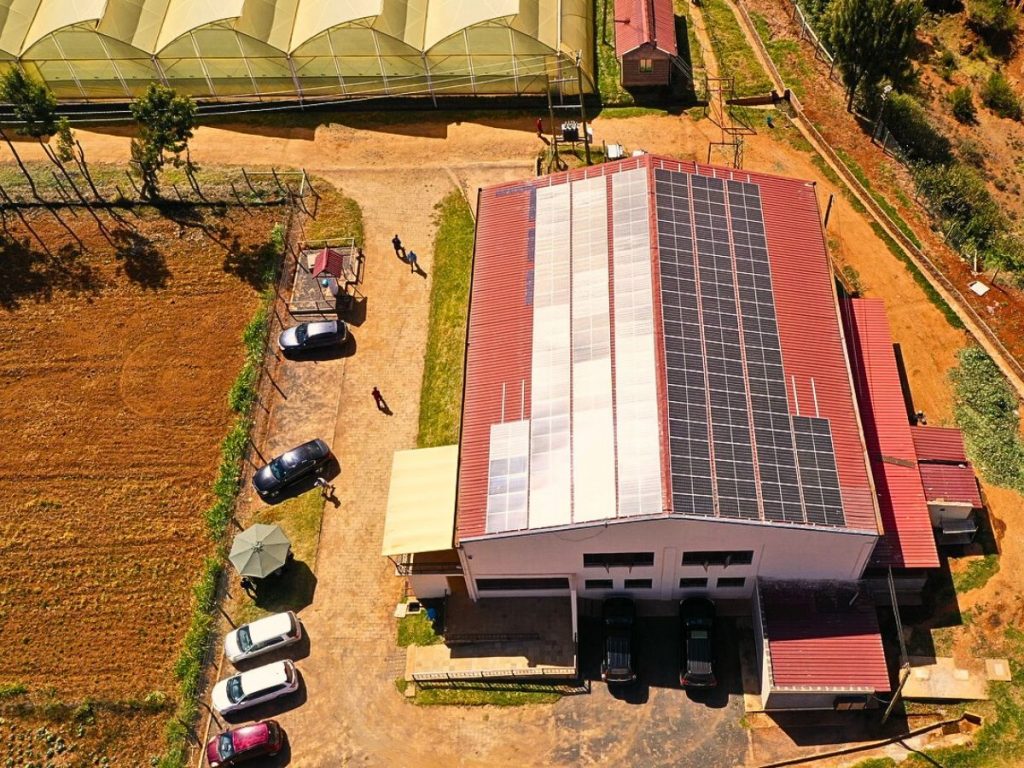
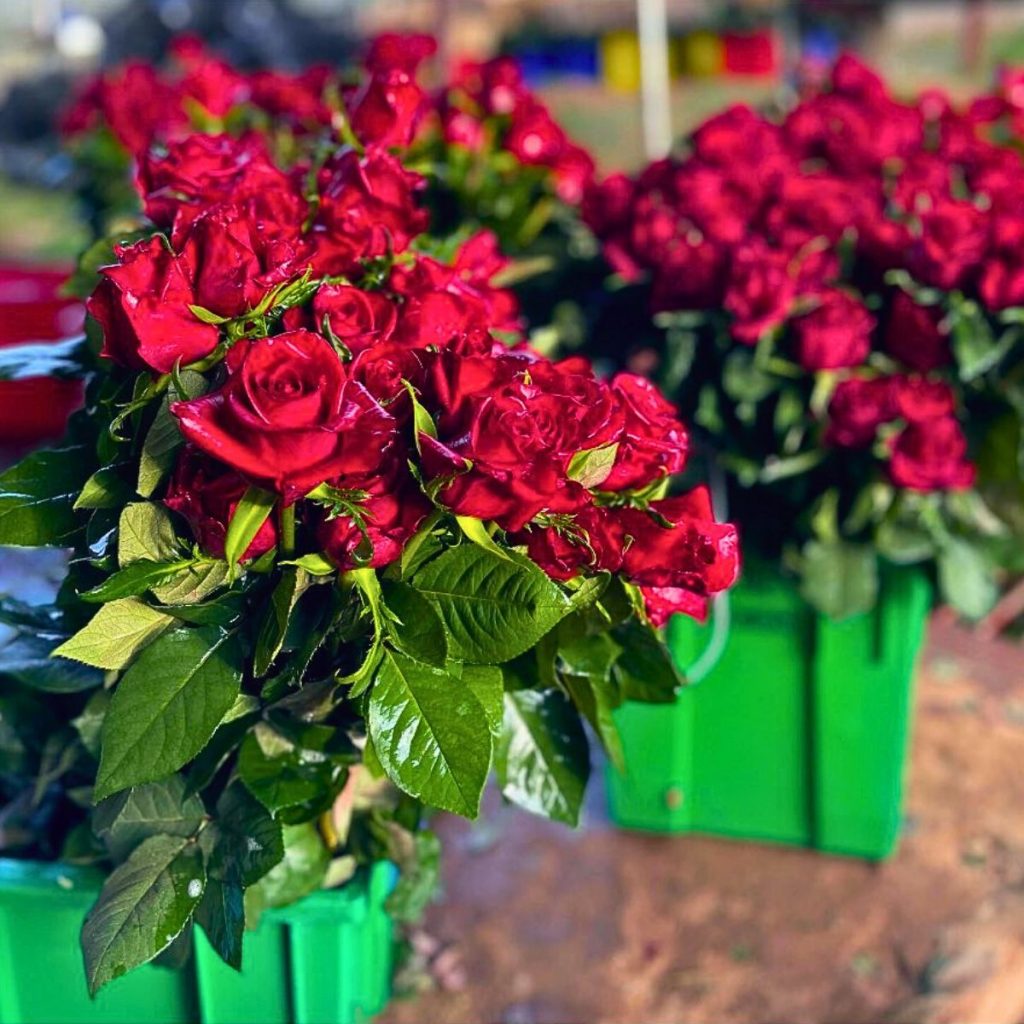
It provides important nutrients that plants can easily absorb, improving plant growth and vigor. It also introduces beneficial microbes to the growing medium, improving plant health and disease resistance. In addition, it helps suppress pests and diseases, acts as a natural biological control agent, and can also be used as a foliar spray, helping to absorb nutrients directly through the leaves and improving flower health and yield.
Water Harvesting for Farms and Communities
Sustainability also means conserving resources, including water, and reducing their waste. Although there is little water shortage in the area where Kikwetu Flowers is located, the floriculture farm still does all it can to protect the available water resources.
The water collected by the floriculture farm, whether it is rainwater from the roofs and gutters of the greenhouses or water collected from other sources around the farm, is fully treated and stored in a 70,000 cubic meter reservoir (the rose farm can store it for up to 6 months, which may be enough! ). Kikwetu Flowers also uses this water as tap water and delivers it to local people and the communities around the farm. This is intended for the domestic and personal use of local residents.
Recyclable plastic sleeves for flower packaging
Recyclable plastic sleeves are special environmentally friendly packaging materials mainly used in the flower industry to protect and display flowers during transportation, delivery and sale. These are typically made from materials such as biaxially oriented polypropylene (BOPP), polypropylene (PP), or low-density polyethylene (LDPE) and are designed to be recycled after use.
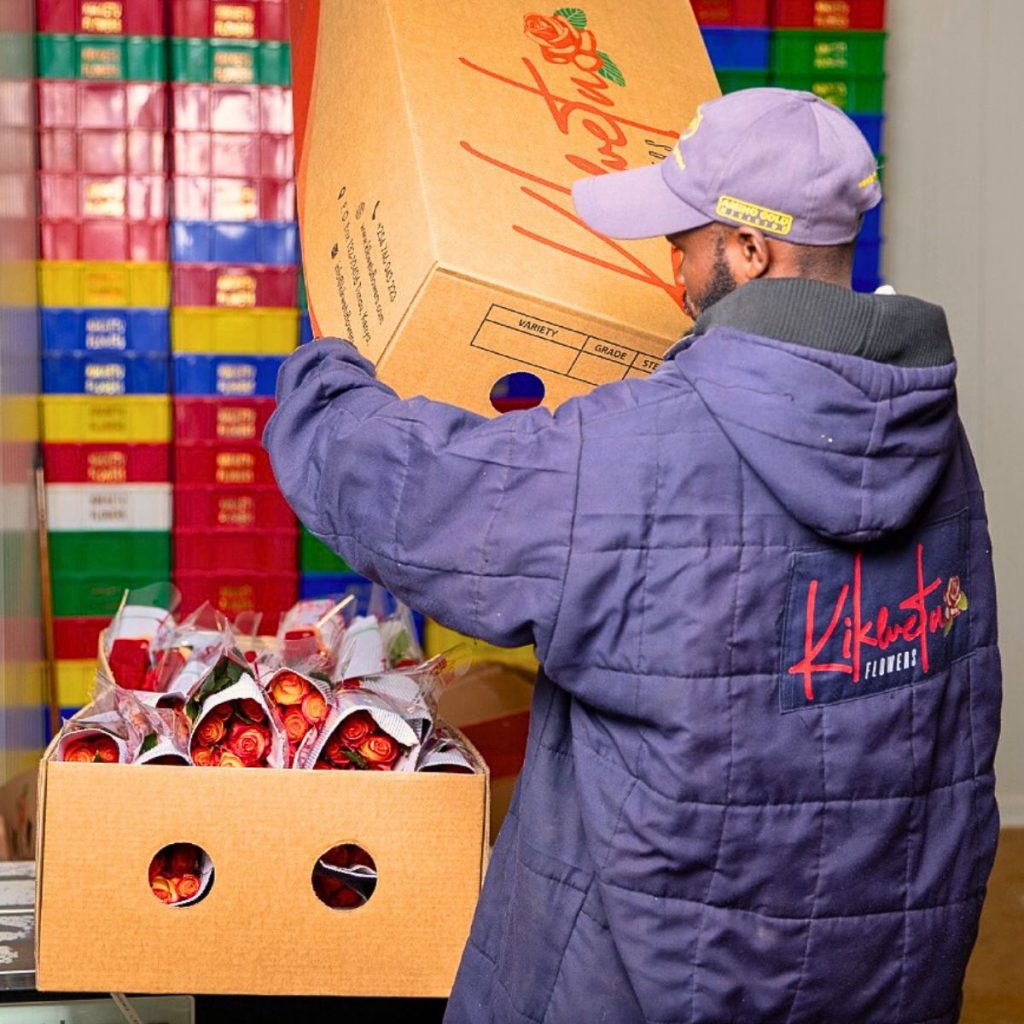
Kikwetu Flowers also invests in these packaging products because the use of recyclable materials helps reduce the environmental impact of single-use plastics.
This minimises waste and promotes a circular economy.
As consumers become more environmentally conscious, the demand for sustainable packaging solutions is also increasing.
Therefore, offering sustainable packaging materials such as recyclable plastic sleeves will enhance the brand’s reputation and appeal to environmentally conscious customers. But generally speaking, it is about reducing the carbon footprint associated with flower production, which in turn reinforces the ideals of sustainability in floriculture.
Integrated development of the local community
Kikwetu Flowers, as mentioned above, is located in a largely rural area. Often, especially during heavy rains, the dirt roads in the area are virtually impassable for cars, motorbikes and people.
So the grower decided to repair most of the roads connecting the villages himself, to make it easier for local residents to commute to work and to transport various goods. In the end, everyone benefits from these sustainability and community-focused efforts, and the grower continues to produce high-quality premium roses.
Edited Version: Original Article: THURSD.
Kikwetu at the just concluded IFTF
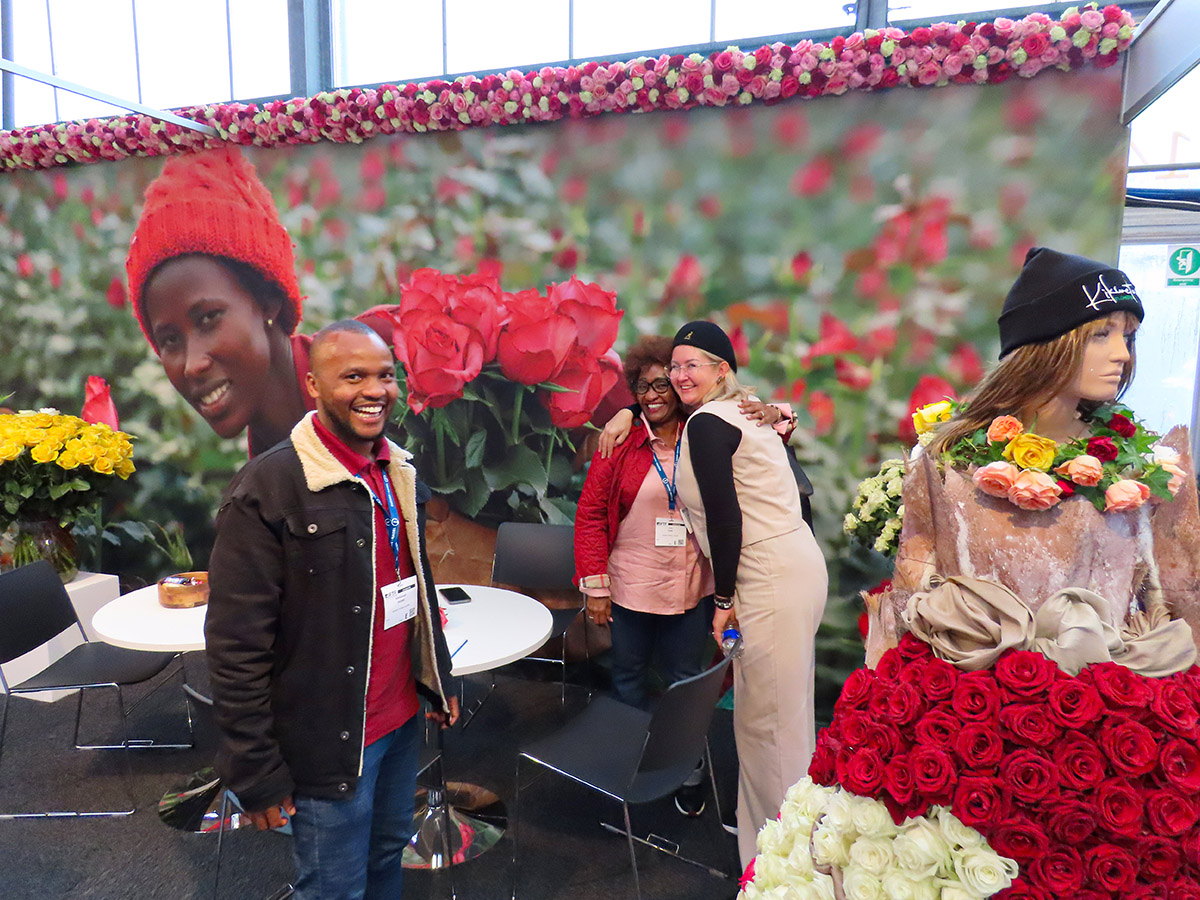
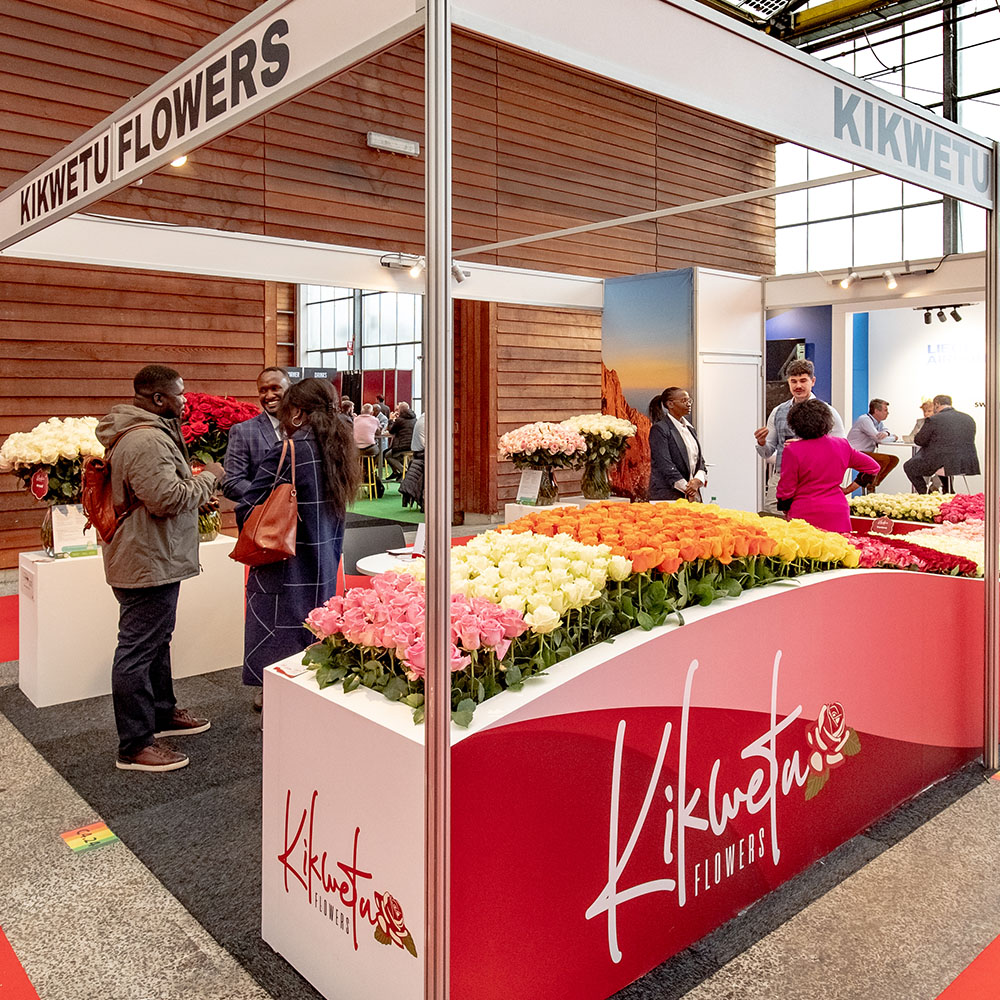
IFTF Photos Courtesy of Floral Daily
